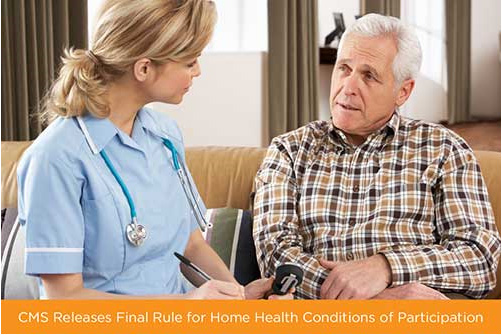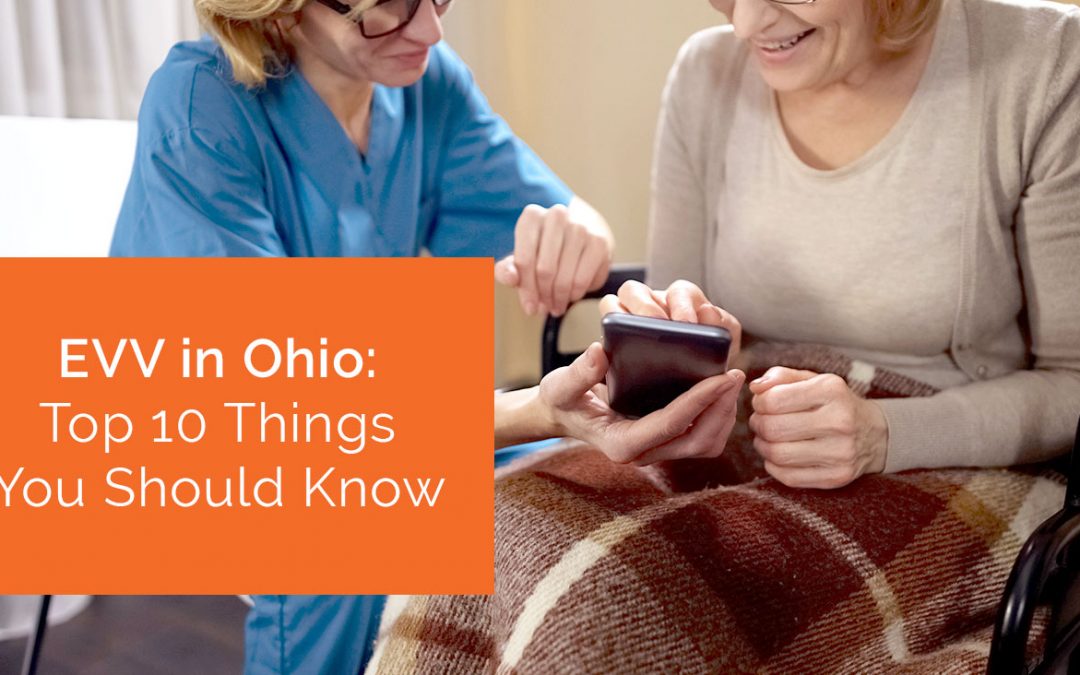Since the late 1990s, the Medicare Conditions of Participation (CoP) for home health agencies have remained largely unchanged. The last significant update to the rules was in 1999, when the OASIS rules were introduced. This was only after significant outcry from HHA’s regarding the wholesale nature of proposed changes in 1997.
However, in response to the changing nature of home health and the health care industry as a whole, CMS has issued new CoP effective July 13, 2017. The agency notes that these new regulations are reflective of the most current home health practices, and focus on patient care and ensuring the best possible outcomes of that care.
To that end, the new rules are highly focused on protecting patient rights, improving communication between providers and patients, quality improvement efforts, and ensuring a consistent process for care planning, delivery, and coordination. According to CMS, “These changes are an integral part of CMS’ overall effort to improve the quality of care furnished through the Medicare and Medicaid programs, while streamlining requirements for providers.”
The new CoP was initially proposed in a draft proposal in 2014, with a three-year window for approval. That approval window expired in January, after a period of comment and refinement.
New CoP Highlights
The new CoP are contained in a comprehensive 374-page document, published in the Federal Register. Among the highlights of the new rules include:
• Simplified rules regarding the organizational structure of home health agencies. Parent agencies and branches are still allowed, but with new requirements and definitions for service.
• New personnel qualifications for home health agency administrators and clinical managers.
• A clear explanation of patient rights and the steps an HHA must take to ensure those rights are maintained.
• New requirements for patient assessments to address mental, physical, and emotional health.
• A requirement that patients and their caregivers receive written information about their care plan, including instructions for medication. They must also receive information about their home health providers, to include contact information for the HHA clinical manager, and information about their upcoming visit schedule.
• HHAs must implement an integrated communication system to coordinate care. HHAs must maintain active and ongoing communication with the patient’s health care providers.
• Care coordination is now a requirement under the new rules. HHAs must provide a licensed clinical provider to manage patient care needs, including patient referrals and care plan development and follow through.
• New requirements for infection prevention and control. These requirements are based on standard infection control protocol, as well as providing enhanced education and training to patients and their caregivers.
• HHAs must have an ongoing agency-wide quality assessment and performance improvement (QAPI) program in place to collect and analyze data and continuously monitor and improve patient care.
• A simplification of administrative requirements to return focus onto the delivery of care.
• Updated definitions for specific terminology.
The specifics of these rules — and others — can be found in the Federal Register and the Conditions of Participation documentation provided by CMS.
Preparing Your Agency
Because these new rules have been in the works for at least three years — and in some cases, almost two decades, as CMS took feedback on the original 1997 draft rules into consideration when drafting these rules — your agency has probably already been working on meeting the new requirements for some time.
That being said, there has been some concern over whether agencies will have enough time to fully comply with all of the new requirements when they go into effect. Of particular concern is the potential need to develop a new QAPI program and what the documentation requirements for communication will be. One solution to these issues the implementation of advanced home health software that will allow for better documentation and communication while also collecting the data necessary to comply with the new requirements.
Most importantly, now is the time for your agency to review the CoP rules and identify the areas in which you need to make changes. Failing to do so could result in hefty fines and penalties at your next CMS survey. The good news is that agencies will have until January 13, 2018 to comply with the QAPI section of the rules if they have not already done so.
The new standard requires a detailed, ongoing, and well-documented effort that extends well beyond your providers and up to your executive leadership and/or health system partners, so right now, you should be reviewing your current QAPI efforts to determine what gaps need to be filled, and developing a plan to fill those gaps. Be sure to thoroughly document all of your efforts, from the selection and development of your QAPI plan to reporting, to ensure ongoing compliance.
The implementation of the new CoP standards will undoubtedly lead to additional questions and changes to your HHA. Stayed tuned to CompliaHealth’s blog for more news and updates on this important story. And in the meantime, be sure to review some of our resources to better manage your agency and the rapidly changing home health industry.




